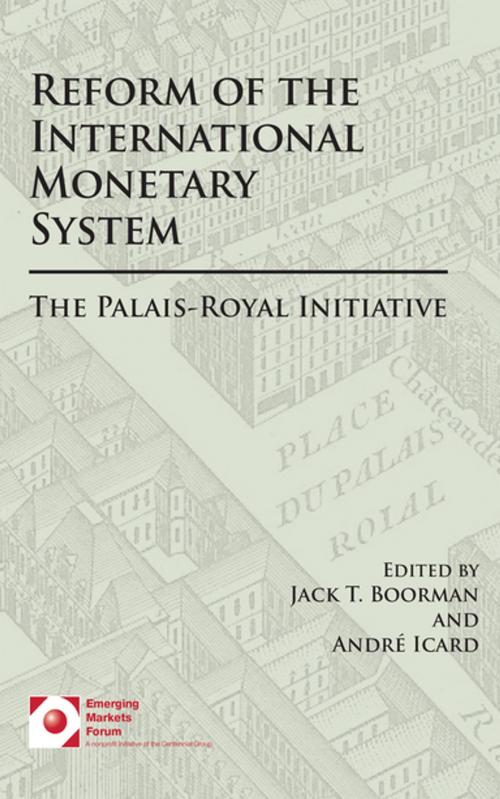Reform of the International Monetary System
The Palais Royal Initiative
Business & Finance, Economics, Development & Growth| Author: | ISBN: | 9788132118923 | |
| Publisher: | SAGE Publications | Publication: | November 8, 2011 |
| Imprint: | Sage Publications Pvt. Ltd | Language: | English |
| Author: | |
| ISBN: | 9788132118923 |
| Publisher: | SAGE Publications |
| Publication: | November 8, 2011 |
| Imprint: | Sage Publications Pvt. Ltd |
| Language: | English |
September 2008 saw the United States financial system at the edge of collapse, with the tightly integrated global financial system following close behind. But that was only a symptom of the problems that generated the ensuing crisis. The more fundamental cause lay in some of the practices that had developed in many of the major financial institutions. The emergence of perverse incentives helped create a credit bubble that eventually burst. But even these failures of the financial system, by themselves, would have been unlikely to cause a crisis of the scale that the world confronted. The crisis was fostered by the massive expansion of liquidity that developed in the global financial system-and its inevitable impact on interest rates and the search for yield that those low rates created. That, in turn, was a result of failures within the International Monetary System.
The book will help anyone who is seeking to understand how the International Monetary System works, the sources of its weaknesses and vulnerabilities, and the proposals for the change. The Report of the Palais Royal Initiative and the other papers in this book will help stimulate a global discussion of the reforms to the International Monetary System that are so urgently needed.
September 2008 saw the United States financial system at the edge of collapse, with the tightly integrated global financial system following close behind. But that was only a symptom of the problems that generated the ensuing crisis. The more fundamental cause lay in some of the practices that had developed in many of the major financial institutions. The emergence of perverse incentives helped create a credit bubble that eventually burst. But even these failures of the financial system, by themselves, would have been unlikely to cause a crisis of the scale that the world confronted. The crisis was fostered by the massive expansion of liquidity that developed in the global financial system-and its inevitable impact on interest rates and the search for yield that those low rates created. That, in turn, was a result of failures within the International Monetary System.
The book will help anyone who is seeking to understand how the International Monetary System works, the sources of its weaknesses and vulnerabilities, and the proposals for the change. The Report of the Palais Royal Initiative and the other papers in this book will help stimulate a global discussion of the reforms to the International Monetary System that are so urgently needed.















